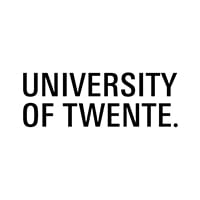PhD position on Smart Materials for Information Processing
Position Details (PhD Program)
Job description
This position is part of the NWO KIC Smart Materials project, Smart Materials for Information Processing, in collaboration with the Interfaces and Correlated Electronics (ICE) group at the University of Twente and the Infomatter group at AMOLF. The SMIP project aims at revolutionising computing by developing adaptive, smart materials that combine memory and learning directly within their structure, uniting theory and experiment. These materials adapt their computations over time, reducing energy use and improving efficiency. Partnering with Toyota and Demcon TSST, SMIP will showcase this innovation through a fuel-cell management prototype, achieving better performance and durability.
In 2020, we introduced the concept of reconfigurable nonlinear processing units (RNPUs, [Nature 577, 341-345, 2020[(https://www.nature.com/articles/s41586-019-1901-0). In this PhD project, you will work on the development of efficient machine learning procedures to be applied to RNPU networks in combination with memristive materials and applying the theoretical hysteron concept.
Your profile
- You are a highly motivated and enthusiastic student;
- You have a MSc degree in the field of (semiconductor) physics, electrical engineering or similar with an affinity for machine learning;
- You are an independent and original thinker with a creative mindset;
- You are a fast thinker with excellent analytical and communication skills;
- You have good team spirit and like to work in an internationally oriented environment;
- You are experienced with Python and Pytorch;
- You are fluent in English.
Our offer
- A full-time position for four years, with a qualifier in the first year.
- Your salary and associated conditions are in accordance with the collective labour agreement for Dutch universities (CAO-NU).
- You will receive a gross monthly salary ranging from € 2.901 (first year) to € 3.707 (fourth year).
- There are excellent benefits, including a holiday allowance of 8% of the gross annual salary, an end-of-year bonus of 8.3%, and a solid pension scheme.
- A minimum of 232 leave hours in case of full-time employment based on a formal workweek of 38 hours. A full-time employment in practice means 40 hours a week, therefore resulting in 96 extra leave hours on an annual basis.
- Free access to sports facilities on campus.
- A family-friendly institution that offers parental leave (both paid and unpaid).
- You will have a training programme as part of the Twente Graduate School, where you and your supervisors will determine a plan for a suitable education and supervision.
Information and application
Are you interested in this position? Please send your application via the ‘Apply now’ button below before July 31st 2025, and include:
- A resume
- A short motivation letter
- A publication list
The first round of interviews will be held on September 1, 2025.
For more information regarding this position, you are welcome to contact Prof. Wilfred G. van der Wiel via the following email address: [email protected].
Screening is part of the selection procedure.
About the department
You will be working in the NanoElectronics Group of Prof. Van der Wiel. The NanoElectronics Group (NE) performs research and provides education in the field of nanoelectronics, comprising the study of the electronic and magnetic properties of systems with critical dimensions in the nanoregime. It is our mission to excel in the field of nanoelectronics through the development of novel (concepts for) electronic devices and systems with nanoscale dimensions for application in future generations of electronics and information storage. In particular, we focus on neuromorphic electronics, quantum (spin) electronics, 2D electronic systems and acousto-electronics. The NanoElectronics Group is a founding member of BRAINS, the Centre for Brain-Inspired Computing at the University of Twente.
About the organisation
The faculty of Electrical Engineering, Mathematics and Computer Science (EEMCS) uses mathematics, electronics and computer technology to contribute to the development of Information and Communication Technology (ICT). With ICT present in almost every device and product we use nowadays, we embrace our role as contributors to a broad range of societal activities and as pioneers of tomorrow’s digital society. As part of a tech university that aims to shape society, individuals and connections, our faculty works together intensively with industrial partners and researchers in the Netherlands and abroad, and conducts extensive research for external commissioning parties and funders. Our research has a high profile both in the Netherlands and internationally. It has been accommodated in three multidisciplinary UT research institutes: Mesa+ Institute, TechMed Centre and Digital Society Institute.



 University of Twente
University of Twente